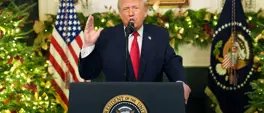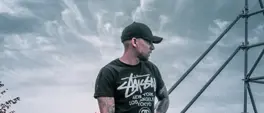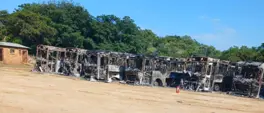MONDE NDLOVU: SA needs the 'now you've gone and killed me' type of leader
Monde Ndlovu
23 February 2023 | 10:00The resounding question, argues Monde Ndlovu, is whether the decisions made by leaders across society reflect the aspirations of the people, as failure to do this would amount to 'killing the people'.
Former President Thabo Mbeki and leadership guru Eric Mafuna enjoy sharing a story about a Barotse leader who was to become a king, and was brought from the village into the presence of the people who were ready to shower him with praise and adoration for his elevation to kingship.
However, his response to this leadership position was rather unique, he said: “Now you’ve gone and killed me.”
This killing he was speaking about was not of the literal type, but of the putting aside of personal ambitions, desires, views, opinions, perceptions, prejudices, and stereotypes, for the benefit of the people, where the cause of the people takes centre stage, and the leader is there to facilitate the advancement of those people, and become the custodian of their hopes and dreams.
Failure to champion this noble cause of the people would amount to killing them. And so in this way, the Barotse king was expressing a deep sense of purpose and commitment to lead, by exclaiming that he had been killed.
With the ongoing challenges South Africa faces, the resounding question is whether the decisions made by leaders across society reflect the aspirations of the people.
Are the leaders 'killing themselves' or 'killing the people'?
WHERE ARE THE PEOPLE?
In business, barriers in decision-making exist as organisational culture has a mind of its own. One finds that top leadership sets the tone, often without wider consultation with employees about the state and direction of the business.
Employee engagement surveys, amongst other tools, and sporadic discussions with employees aren’t sufficient to build great organisations.
The economic system and its challenges have not taken centre stage. It seems like the country's leadership is moving ahead blindly, sideling substantive issues around transforming the economy.
In politics, parties claim to represent their respective constituencies - yet the same constituency’s appetite for engaging in the political system continues to diminish. Currently, a growing section of society is experimenting with new ways of expressing itself outside of the mainstream and traditional guardrails of the political economy.
Again, I ask, where are the people? Have they been killed by their leadership, or do we have leaders that have been killed by the cause?
POLITICS, BEING POLITICAL, AND THE POLITICAL SYSTEM
Politics, being political, and the political system are not all the same thing at the same time.
Politics is about how groups can use their power and make decisions on how to govern a country. Being political is challenging how people should act and think about how a country should use its power and govern. And the political system is the chosen way of running society, hence in South Africa we have a democratic dispensation.
The country is burdened daily with this phenomenon of politics and the political system, as anything outside of both of these tenets tends to not gain much traction in the public domain.
In fact, when we think about leadership in South Africa, many of us tend to define it from the political system view and its politics. Politics, therefore, has become synonymous with leadership in our daily discourse.
I am arguing that leadership should be seen not only in the political system and its politics, but the quality of politics should be engaged differently, because leadership needs to be understood differently.
Leadership in our country needs to become more people-centred and people-powered, right across the political economy.
The business of the political system should be policy, regulation, law, and legislation, that must reflect the aspirations of the people and their untapped potential. It should drive a mandate that reduces poverty, unemployment, and inequality, whilst protecting the right to be human in an inhumane world. A leadership that will create a new spirit of excellence underpinned by good social values.
The business of business should be to create products and services that will drive the economy forward and unleash the human capital potential of the country.
The business of people should be to build value-based communities and focus on talent development. The business of communities should be about protecting the future prospects of children who pass through their hands. The business of children should be to develop curiosity and stretch their minds at an early age, to fall in love with reading, writing, reflecting, ideating, observing, and researching, which are the backbone of leadership practice.
This can only be possible if leadership is seen as a tool to facilitate the advancement and empowerment of the people.
To kill oneself is to have the people fill your mind with their needs and aspirations, to love them deeply, to surrender yourself to them, and just like the Barotse king, say “now you have gone and killed me.”
Monde Ndlovu is a consultant for African Leadership Development.
Get the whole picture 💡
Take a look at the topic timeline for all related articles.
Trending News
More in Opinion

12 December 2025 15:34
CHARLES MATSEKE | The Republic of commissions arrives at its point of no return

12 December 2025 14:15
REBONE TAU | Ekurhuleni needs bold, decisive leaders to reverse years of capture

12 December 2025 05:13
MANDY WIENER | Searching for a superhero with a spine of steel: Why the position of NDPP matters so much











